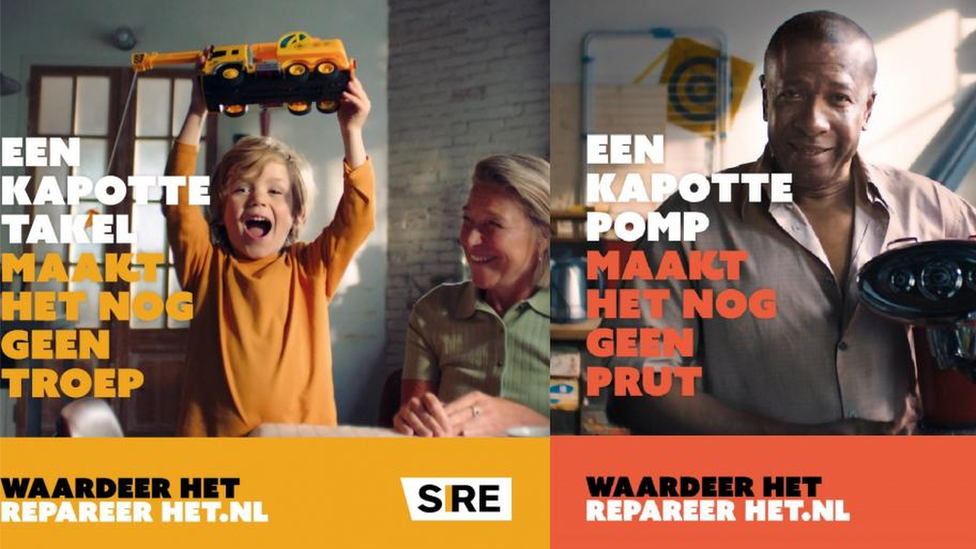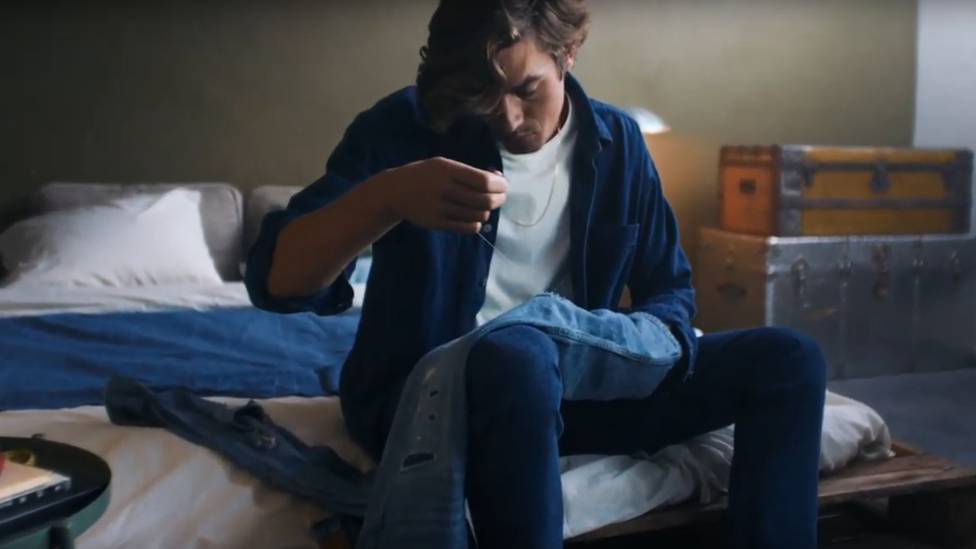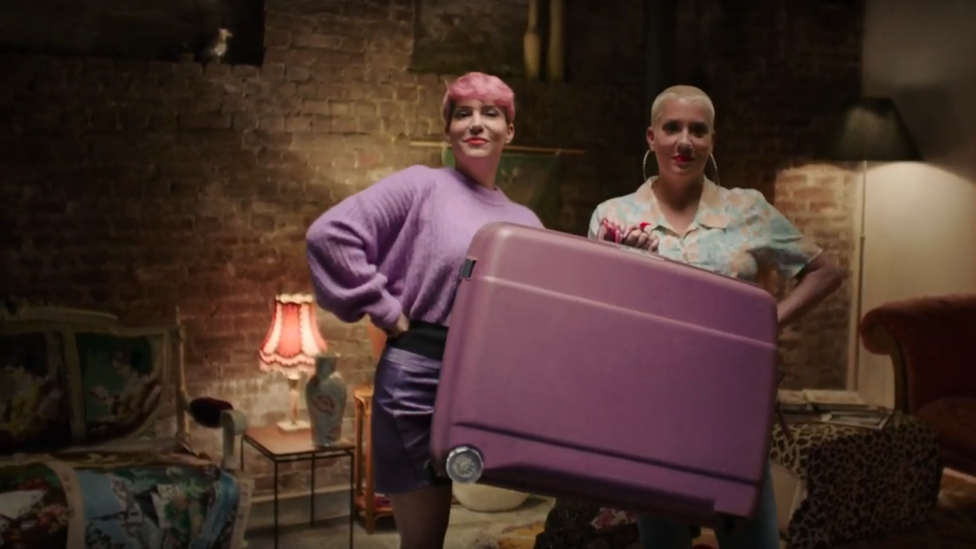Dutch urged to 'make do and mend' in new campaign
- Published

'A broken part doesn't ruin the whole'
A Dutch campaign group is calling on the public to stop throwing away old clothes and household goods and try to mend them instead.
SIRE, which brings together advertising, publishing and communications agencies, hopes that the public "won't be in such a rush to throw their broken shoes and devices, external", the NOS public broadcaster reports.
"There was a time when we used to do our own repairs, but now we're increasingly taking the easy way out and replacing things that don't work properly," SIRE Director Lucy van der Helm told NOS.
"Recycling gets a lot of attention, which is good, but very few people realise that repairs are even better. If we all repaired more, we'd need to recycle less," she said.
'Rate it, repair it'
SIRE estimates that each person in the Netherlands throws away an average of 18kg of electrical appliances a year, not to mention 16kg of toys and furniture and 15kg of textiles, and will only consider repairing an item if replacing it costs more than 100 euros.
The campaign is running television, internet and radio adverts, along with the social media hashtag #waardeerhetrepareerhet ("rate it, repair it")., external, but doesn't simply want to lecture the public.
SIRE has also set up a website full of tips on how to repair common items, external and, failing that, a database of workshops where you can get them fixed nationwide.

From patching your jeans...
Ruth Mugge is professor of Design for Sustainable Consumer Behaviour at Delft University of Technology, and says she supports the campaign because research shows people get a "great deal of satisfaction from carrying out repairs themselves".
"This is good news for your wallet and the environment, external," she told the Adformatie trade magazine.
You may also be interested in:
Social media reaction so far has been supportive of both the campaign and its aims, although there are complaints that electrical goods get binned because spare parts and repairs are simply too expensive, external.
SIRE, which was founded in 1967, has often captured the public imagination with its efforts to raise awareness of issues like loneliness among the elderly and online bullying.
It has not shied away from controversy either - most notably with a call to "let boys be boys" in 2017, which proposed that discouraging risk-taking was harmful to young boys' development, external.
Earlier this year it made headlines with its #doeslief ("be nice about it") campaign, external, which tried to get people to behave better in shops, on the road and across social media, after polling data suggested the public are concerned about hardening social attitudes.

... to fixing the wheels on your suitcase.
Reporting by Martin Morgan
Next story: Uzbek anger at poisoning of stray dogs
Use #NewsfromElsewhere to stay up-to-date with our reports via Twitter, external.